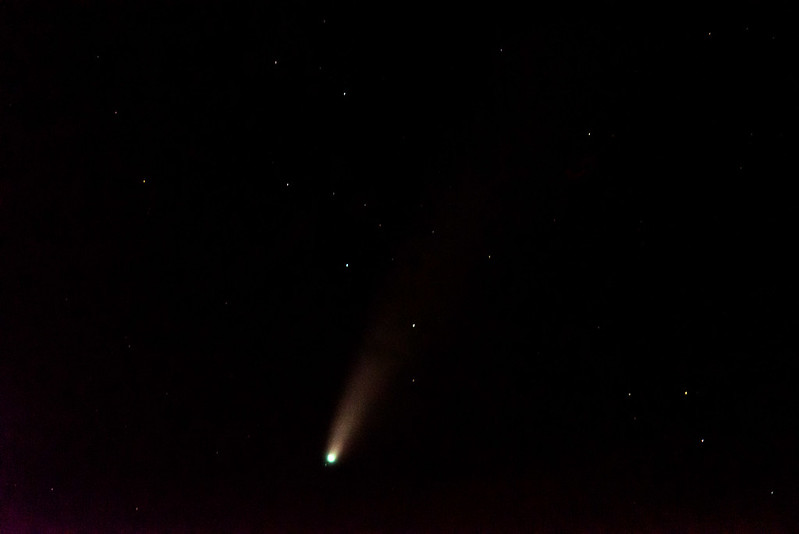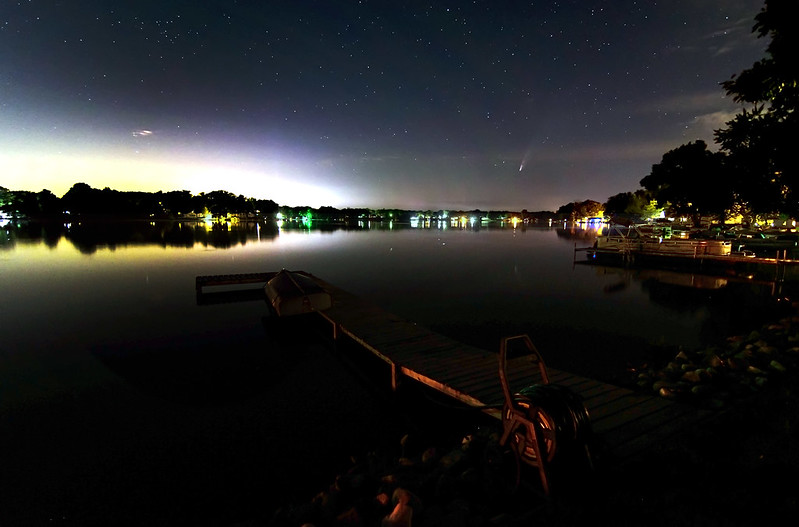
About an hour after sunset, the new visitor to our night sky was visible in the northeast sky. Comet Neowise was discovered in March of 2020, and became visible to the naked eye in July. While it is visible to the unaided eye, I found it a bit difficult to view without the aid of a camera or binoculars, because the eye can see light better from the peripheral vision, or the sides of the eye. So, looking just left or right of the comet actually gave me a better view - at least I could see it and aim the camera at it.

Aiming a 600mm lens at a tiny spot in the dark sky was not easy, but I did manage to capture at least one "close up" of the comet. Even the mirror moving on the camera when the shutter release was pressed would shake the image, so I had to use a mirror-up function and the timer to move the mirror up, then 10 seconds later, the image would be captured.
The image above is the result of quite a few takes; the F6.3 limit on the lens also created some obstacles to overcome. Generally, I choose 1.8 or 2.8 for astrophotography, but this lens isn't made for that, so I managed to compensate for the shortcomings of the lens.

As the evening progressed, clouds entered our field of view, as the comet moved closer to the horizon. One last capture shows some clouds interfering with the comet's tail, and a few minutes later, the comet was covered by clouds.
If you get a chance in the next week or two, try to view the comet. If you miss your opportunity, you won't see it again for over 6000 years.


No comments:
Post a Comment